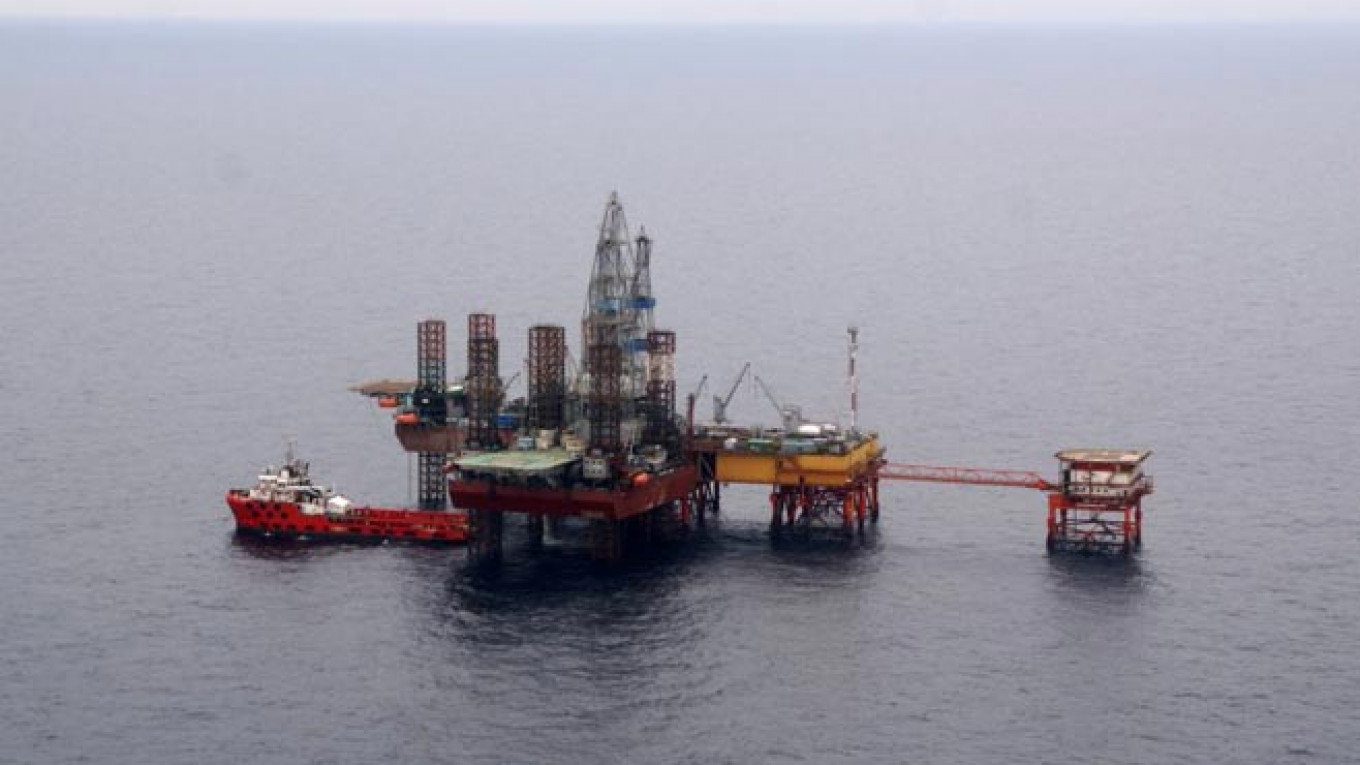Foreign firms involved in Crimea's offshore oil and gas exploration will find themselves with a new local partner following the peninsula's entrance into the Russian Federation, Kommersant reported Thursday, and their continued role in the effort could be in doubt.
Russia's Deputy Natural Resources and Environment Minister Gennady Khramov said Wednesday that oil production on the Crimean shelf would come under government control. Gazprom and Rosneft would then be the only companies eligible to participate in oil production.
Chernomornaftogaz is currently responsible for production on the Crimean shelf. The energy company, which had been owned by Naftogaz Ukrainy, is now under the control of the Crimean government. The Crimean government said Wednesday that it hopes to privatize it and Gazprom has already expressed interest.
Chernomornaftogaz signed a production sharing agreement to explore the shelf with three investors in 2013. Italy's Eni controls 50 percent, France's EdF controls 5 percent, and Voda Ukrainy 35 percent, with Chernomornaftogaz holding the remaining 10 percent. Investment was estimated to be between $3 billion to $4 billion, with an eventual annual yield of up to 3 million tons expected.
It is possible that the contract will be honored, but politics rather than law is likely to decide the issue, said Rustam Kurmayev, a lawyer at Goltsblat. Although the issue may go to court, it is more likely that the Russian state-controlled companies will partially or totally buy out the foreign investors.
In February Naftogaz Ukrainy sued Chernomornaftogaz to recover? $1.2 billion given in credit to the Crimean company between 2009 and 2012. However, Crimean authorities said Thursday that they do not believe they are obliged to pay the debt.
Royal Dutch Shell terminated its participation in a production sharing agreement with Ukraine on the Skifsky region of the Black Sea shelf, Kommersant reported Thursday. The region is within Crimea's territorial waters. It was estimated that between $10 billion to $12 billion of investment was necessary for the project.
A Message from The Moscow Times:
Dear readers,
We are facing unprecedented challenges. Russia's Prosecutor General's Office has designated The Moscow Times as an "undesirable" organization, criminalizing our work and putting our staff at risk of prosecution. This follows our earlier unjust labeling as a "foreign agent."
These actions are direct attempts to silence independent journalism in Russia. The authorities claim our work "discredits the decisions of the Russian leadership." We see things differently: we strive to provide accurate, unbiased reporting on Russia.
We, the journalists of The Moscow Times, refuse to be silenced. But to continue our work, we need your help.
Your support, no matter how small, makes a world of difference. If you can, please support us monthly starting from just $2. It's quick to set up, and every contribution makes a significant impact.
By supporting The Moscow Times, you're defending open, independent journalism in the face of repression. Thank you for standing with us.
Remind me later.


